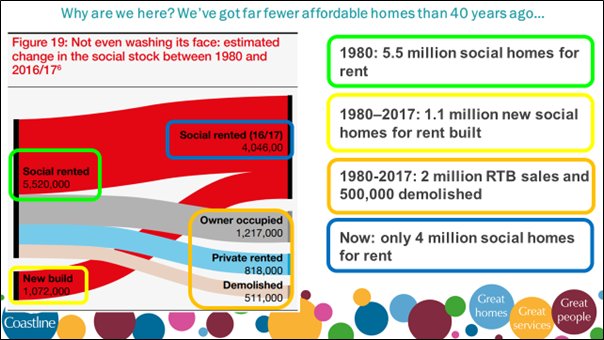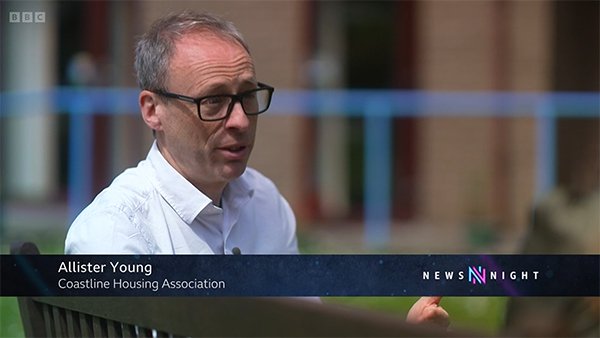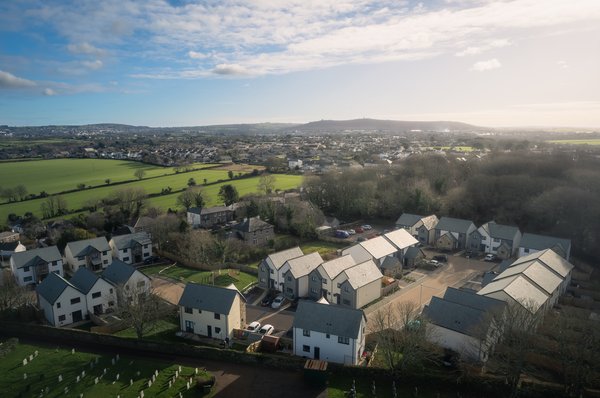In light of the National Housing Federation’s new research on the impact of the housing crisis for older private renters, Coastline CEO Allister Young talks about why this is a problem everybody needs to be concerned about - no matter what their current age.
The National Housing Federation published some eye catching data last week. Their research found that four in ten of people over the age of 55 living in private rent regularly struggle to afford basic living costs - like buying food, heating their home or buying food.
While eye catching, it perhaps shouldn’t surprise us: I’ve talked before about how people who live in private rented housing spend more of their income on housing than people who live in any other tenure. (On top of having to put up with living in homes that are on average poorer quality and less secure than homes of any other tenure.)

What might be surprising though, is how big a problem it is for all of us in the UK - even if you’re not one of that group of ‘older’ people (having recently turned 50 I’m getting more sensitive to age!) struggling in private rent.
The problem is that more and more older people are living in private rented housing. The most recent English Housing Survey found that over the last ten years the number of people aged 55 to 64 living in private rent has increased from 252,000 to 477,000. And coming up fast just behind that group, the number of people aged 45-54 living in private rent has increased from 530,000 to 740,000.
If you then consider that 25% of people living in private rented housing receive help with their rent (either through Housing Benefit or Universal Credit), then you might start to see that it’s a ticking time-bomb for all of us. Because as people that are living in private rent get older and retire, their income through pensions won’t be enough to cover the cost of their rent. Which means the state will have to provide support, which means the state will need to collect more tax, which means we’ll all have to pay more tax.
Why is it like this? Well, let’s look at two levels of ‘why’.
First of all, it’s a failure of successive governments to develop a serious long term housing strategy that looks to the future, thinks about where we need to get to, then puts in place plans to get there. You can see this is shown in the (admittedly slightly complicated!) chart below. Over the period from 1980 to 2017 there was a decrease of 1.5 million in the number of social homes in England: from 5.5 million to 4 million. There might have been 1.1 million new social homes for rent built, but 2 million were sold through the Right to Buy and more than 0.5 million demolished.

So that’s the first level of ‘why’. But why have successive governments failed to do something about what seems like a problem they should: (1) know about; and (2) be able to do something about?
I’d suggest it’s got something to do with timescales. These are long(ish) term problems. They’re not going to bite any government within the five years (if it’s lucky) that it has in power. So it’s a problem that can be left for future generations. I suspect even Homer eventually realised that sort of short-term thinking is a bad idea.

So, what to do about it?
If you want to find ways to solve the second ‘why’ and make democracy take a long term view of problems and solutions you might want to read this article, and start campaigning for changes to our democratic structures and processes.
But if you want to find ways to tackle the first ‘why’ and provide better housing solutions for people, and a better long term future for the country, then come and work for a housing association like Coastline, because that’s what we do.
Update: Allister spoke to BBC Newsnight about this on 17th May 2024. You can see the report on BBC iPlayer starting at 30:39.

